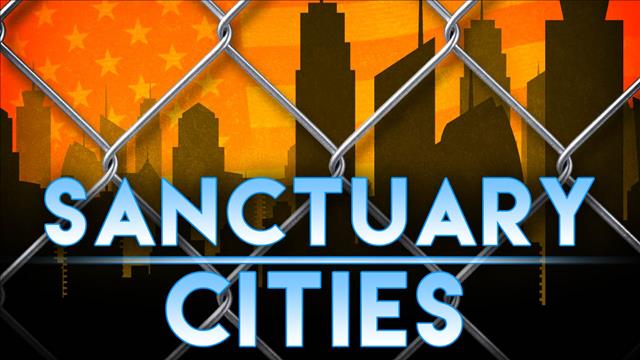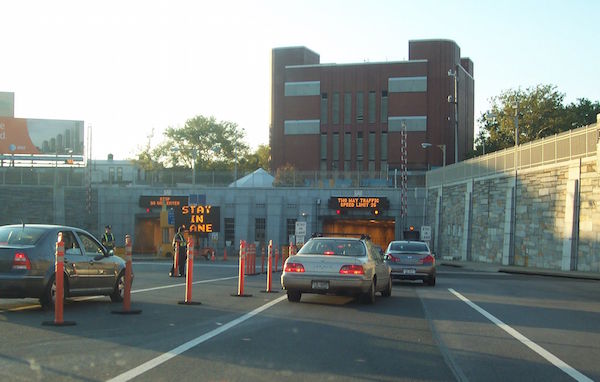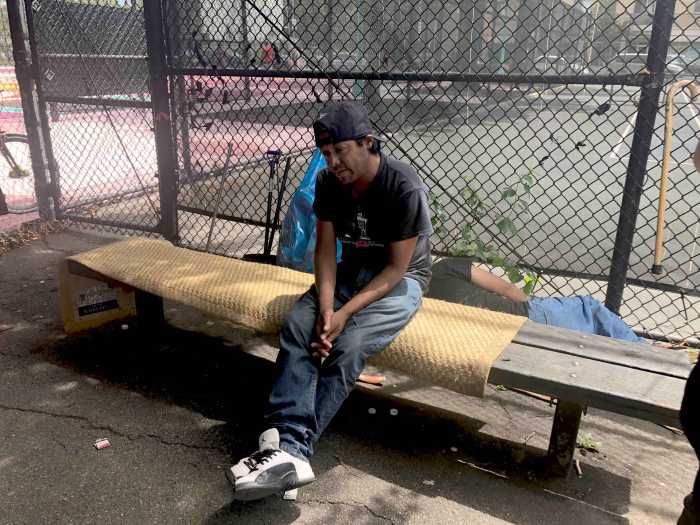
Bay Ridge Assembly Member Nicole Malliotakis yesterday signed onto a proposed measure, that if enacted could strip the City of funding if it interferes with federal homeland security laws.
The bill, dubbed the New Yorkers Combating Alien Recidivism and Ending Sanctuary (NY CARES) Act, seeks to prevent the existence of “sanctuary cities”, municipalities that take steps to prohibit cooperation between their law enforcement agencies and federal immigration officials.
In 2014, the City became a “sanctuary city” after the City Council enacted two local laws which impeded cooperation between the New York City Department of Correction (DOC), NYPD, and U.S. Immigration and Customs Enforcement (ICE), by prohibiting DOC and NYPD from honoring immigration detainers unless accompanied by a federal warrant and the person:
(1) Has either been convicted of a violent or serious crime, or
(2) Is identified as a possible match on in the terrorist screening database.
The NY CARES Act would prohibit state funding to any county, city, town or village determined to be in willful violation. The local municipality would be tasked with communicating proof of compliance to the State Comptroller before any state funds are disbursed.
According to the NYPD’s Summary of Statistics on ICE Detainers from October 1, 2014 to September 30, 2015, the Department received 504 civil immigration detainers. Of these, only 30 detainers were honored and 474 were denied. Not one individual was transferred from the NYPD to ICE.
Malliotakis additionally pointed to a 2012 memo from then-Director of ICE John Morton advising ICE agents to issue a detainer only under the following conditions:
(1) The individual has a prior felony conviction or has been charged with a felony;
(2) The individual has three or more prior misdemeanor convictions;
(3) The individual has a misdemeanor conviction or has been charged with a misdemeanor involving:
a. violence, threats, or assault,
b. sexual abuse or exploitation,
c. driving under the influence of a controlled substance,
d. unlawful flight from the scene of an accident,
e. unlawful possession or use of a deadly weapon,
f. the distribution or trafficking of a controlled substance, or
g. other significant threat to public safety, or
(4) The individual has been convicted of illegal entry into the country;
(5) The individual has illegally re-entered the country after a previous removal;
(6) The individual has an outstanding order of removal;
(7) The individual has been found by an immigration officer or an immigration judge to have knowingly committed immigration fraud; or
(8) The individual otherwise poses a significant risk to national security, border security, or public safety.
“ICE limits the issuance of civil detainers to situations where the individual is considered dangerous or has already been convicted of breaking the law. So, the fact that the City of New York honored less than 6% of civil detainers truly alarms me,” said Malliotakis. “First the city kicks federal immigration authorities out of Riker’s Island, and now refuses to comply with federal detainer requests. We cannot continue to turn a blind eye as New York City breaks federal law. The State of New York should punish this unlawful behavior and force the city to comply with the law for the protection of its citizens.”

The de Blasio Administration responded with a October 2015 letter to Congressional officials from de Blasio and nearly 100 other mayors across the country opposing federal legislation to withhold federal funds to so-called “Sanctuary Cities.”
“Cities stand to lose hundreds of millions of dollars in CDBG (Community Development Block Grant) funding, which currently supports housing, economic development and other critical programs vital to our economy,” the letter stated if the federal bill was enacted. “In addition, law enforcement and community policing programs will be significantly hampered, undermining public safety.”
Cities United for Immigration Action also provided data and information to illustrate how these proposed funding cuts would affect a variety of programs that are crucial to cities and would negatively impact a diverse cross-section of residents.










